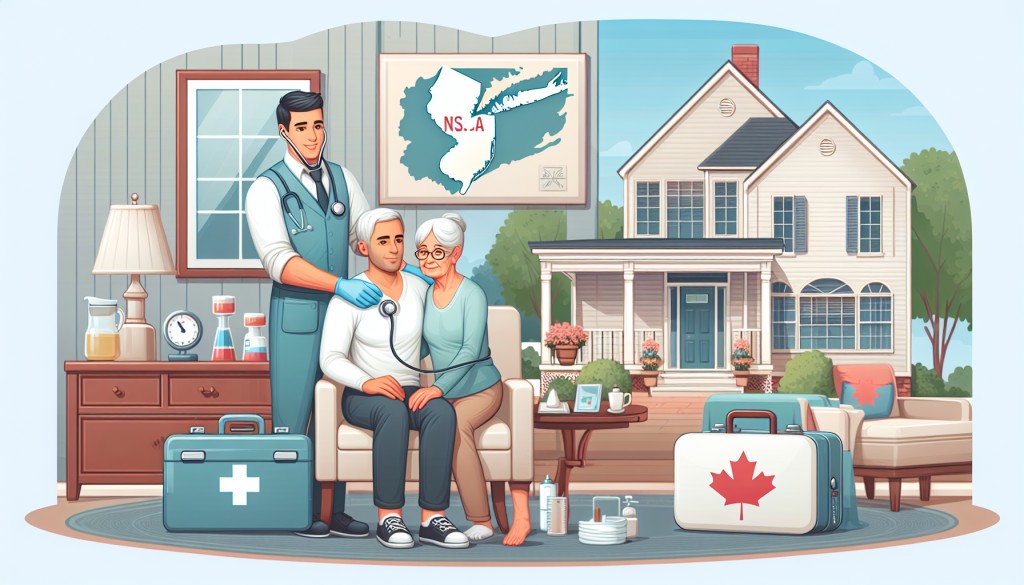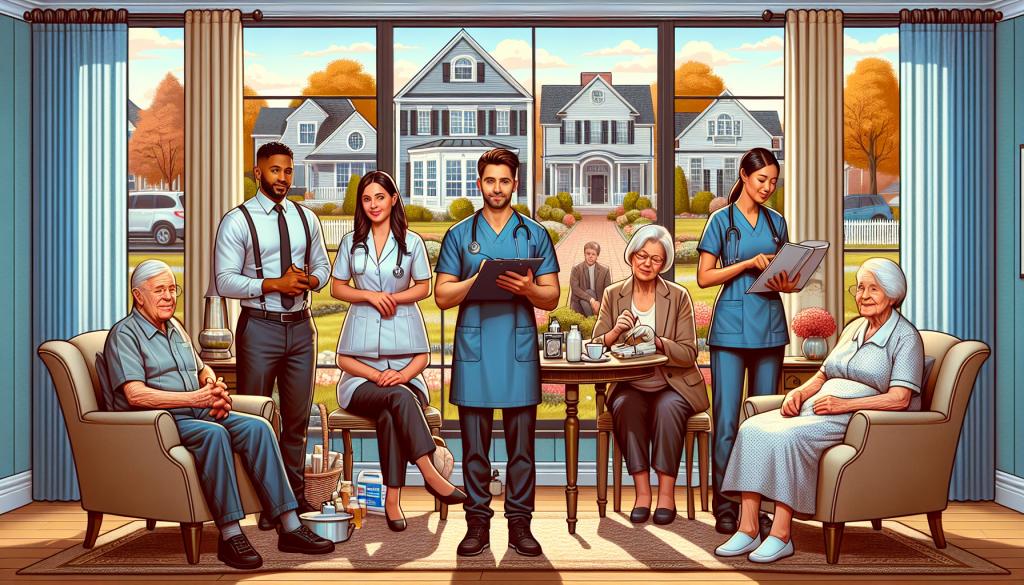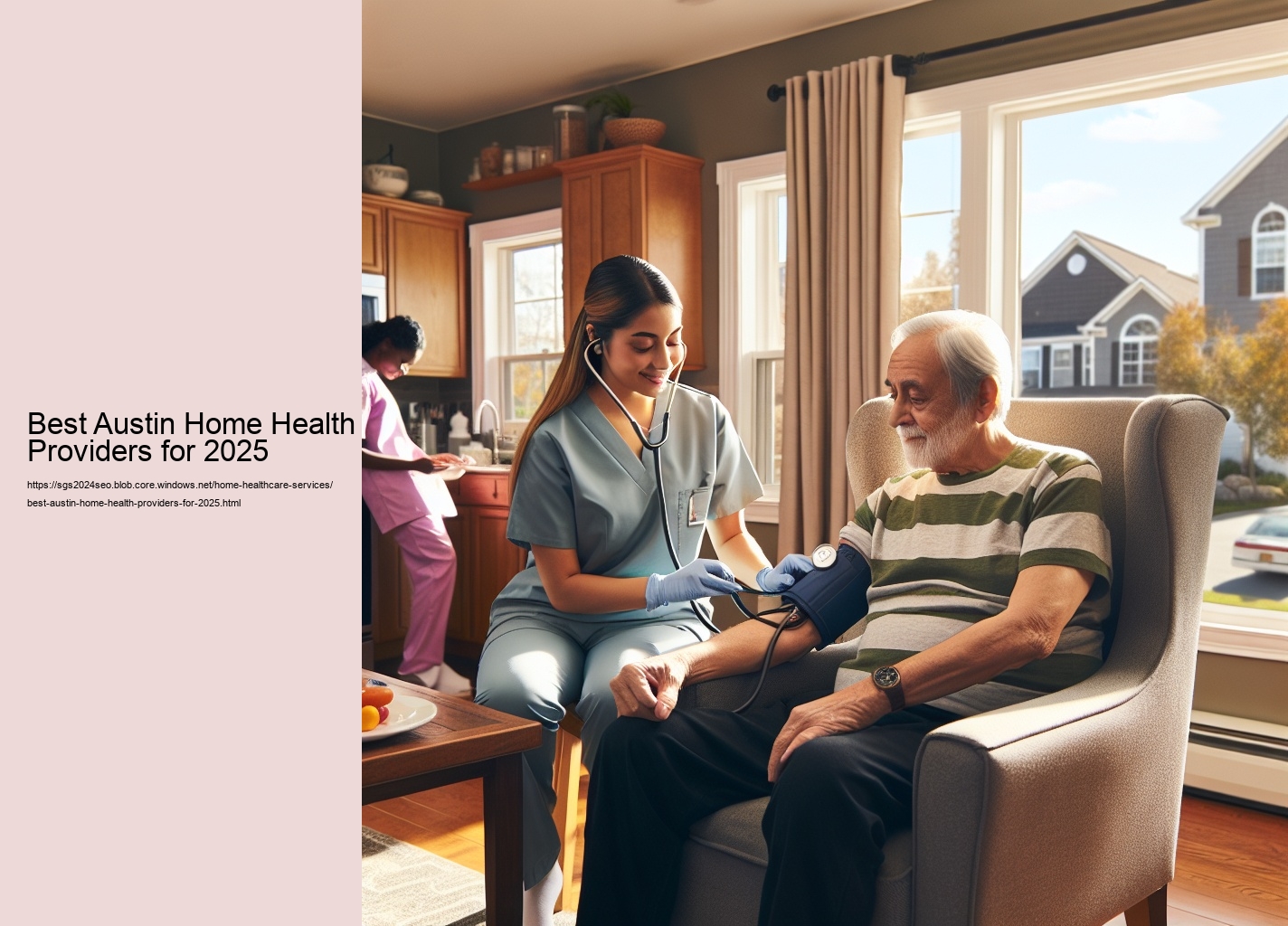Verify Licensing, Certification, and Quality Scores
Before you sign with any home healthcare provider in 2025, deal with licensing, accreditation, and top quality rankings as non‑negotiables. 2025 Home Health Apps and Devices to Watch . Beginning with the essentials: validate the firm is effectively certified in your state for the specific services you need. "Home health and wellness" (competent nursing, therapy, injury care) is regulated in a different way from "home care" or "individual care" (showering, dressing, companionship). Use your state health division or expert licensing board's online database to validate the company license is energetic and in excellent standing, and that it covers the best solution classification. If the company will certainly bill Medicare, confirm it is Medicare‑certified; you can cross‑check this on Medicare's Care Compare website.
Accreditation isn't the like a license, however it indicates the agency has satisfied greater requirements and undertakes regular exterior testimonial. Try to find respected accrediting bodies such as The Joint Compensation, MAN, or ACHC. Request an existing accreditation certification and the day of the last study. For non‑medical home treatment, certification is voluntary; if an agency isn't approved, they need to have the ability to describe exactly how they keep top quality and oversight in its lack.
Do a much deeper credential examine the people that will certainly be in your home. Registered nurses, accredited practical nurses, physical and occupational therapists, and social employees all have private licenses you can validate through state boards. Home wellness assistants should satisfy state training needs. It's affordable to ask the firm to verify that all team have actually passed background checks, are not on the government OIG Exemptions List, and lug proper expert liability and workers' settlement coverage. Demand evidence of the agency's basic responsibility insurance policy; several family members also request a certificate of insurance coverage upon contracting.
Use objective top quality ratings to contrast agencies, not just reviews. On Medicare Treatment Contrast, examine the celebrity scores and explore particular actions like prompt initiation of care, rehospitalization rates, improvement in mobility and self‑care, and client experience scores from HHCAHPS surveys. In 2025, Home Wellness Value‑Based Buying uses nationwide, so ask the agency to share its most recent efficiency or result reports and what it is doing to improve. For Medicaid home- and community‑based solutions, examine your state's provider directory site for quality signs, vital case reports, and EVV (digital see verification) conformity data. Online evaluations can be helpful but should not bypass official quality information and regulatory documents.
Demand openness. Ask the agency for its most recent state study results and strategy of improvement, any kind of CMS permissions or penalties, and just how issues are handled. In a period of telehealth and remote monitoring, ask about gadget security and privacy practices, HIPAA compliance, and whether any kind of digital devices they use are FDA‑cleared where applicable. If the agency declares hospital or physician collaborations, verify how they share info, specifically if they incorporate with your clinician's document system.
Warning include incredibly elusive solutions about licensing or survey background, ran out accreditation, missing out on proof of insurance coverage, uncommonly high personnel turnover with no explanation, or top quality scores well listed below neighborhood standards. A respectable provider will certainly invite these inquiries, give documents swiftly, and assist you translate ratings in the context of your needs. Validating credentials and top quality in advance requires time, however it is one of the most reliable means to safeguard risk-free, efficient care in your home.

Analyze Telehealth, Remote Surveillance, and Information Safety and security
Evaluate Telehealth, Remote Monitoring, and Data Safety
In 2025, picking a home healthcare provider indicates looking beyond bedside skills to the digital backbone that sustains your treatment. Telehealth, remote client monitoring, and data protection now figure out exactly how convenient, risk-free, and connected your treatment will certainly be.
Beginning with telehealth. Video brows through must really feel as dependable as a workplace appointment. Ask just how very easy it is to routine, whether you can see the same medical professional for continuity, and what takes place if the connection drops. Look for functions like e-prescribing, protected messaging, after-visit summaries, and language accessibility such as interpreters or subtitles. Validate the system works with your tools, sustains accessibility requirements, and uses technology aid for senior citizens or caretakers. Just as important is integration: does the telehealth platform speak with your existing medical documents so your primary care clinician sees updates? If care crosses state lines, validate licensure and whether your insurance company covers the solutions you intend to utilize.
Remote monitoring can change every day life for individuals handling chronic problems, recuperating after surgical procedure, or needing safety checks. Focus on medical value and functional dependability. Which problems do they keep track of and with what gadgets? Are the devices FDA-cleared and validated for home use? Who watches the information, exactly how frequently, and what are the action times for unusual readings in the evening or on weekend breaks? Ask just how alert thresholds are set to restrict duds and how often those limits are assessed. Check whether gadgets are lent or purchased, that takes care of setup, training, and substitute, and what cellular or Wi‑Fi connectivity is called for. Interoperability still matters here also: will your data circulation right into your health document, and can you see it in an individual application?

Information safety need to never be a second thought. A service provider's claim of "HIPAA compliant" is a baseline, not a differentiator. Search for independent audits or certifications (as an example, SOC 2 Type II, HITRUST, or ISO 27001), encryption of information in transit and at rest, multi-factor verification, and role-based gain access to with audit logs. Inquire about incident action and violation notice procedures, just how frequently they run safety drills, and their strategy to ransomware resilience and back-ups. For home gadgets, verify that information is secured on the gadget and throughout transmission, software application is maintained to day, and shed or swiped devices can be remotely wiped. Clarify that owns your information, the length of time it's kept, just how to ask for removal, and whether de-identified data is used for analytics or shown 3rd parties. Make sure an Organization Affiliate Agreement exists between the modern technology vendors and the care service provider, and that frontline personnel are learnt personal privacy practices, consisting of obtaining consent for any recording.
Ultimately, look at the human side of the innovation. Will they help establish your Wi‑Fi or supply cellular packages if you do not have broadband? Do they supply clear directions, large-print products, multilingual assistance, and caregiver training? Exists 24/7 tech assistance and a simple means to intensify scientific worries?
In an industry crowded with apps and devices, the best home medical care solutions in 2025 blend high-grade scientific treatment with dependable virtual accessibility, actionable tracking, and extensive security of your information. Pick the group that clarifies their modern technology plainly, confirms their safeguards, and makes it very easy for you and your family to utilize.
Examine Treatment Plans, Staffing, and Caretaker Fit
Choosing home medical care in 2025 methods looking past a glossy brochure. The appropriate companion will show you a clear treatment strategy, reputable staffing, and a caregiver who truly fits your loved one's requirements and character. Beginning with the treatment strategy. Ask exactly how the firm examines demands and sets objectives: not just detects, however practical abilities, drugs, drop risk, cognitive support, nutrition, solitude, transport, and caretaker respite. A strong strategy is created by or under the guidance of a registered nurse or therapist, with quantifiable results (as an example, fewer falls, enhanced wheelchair, drug adherence) and a timetable for evaluation-- often every 30 to 60 days or after any type of adjustment in problem. In 2025, lots of agencies use remote client surveillance and telehealth; make certain the plan discusses what devices are used, that examines the information, and exactly how info is shared with your medical professional. Interoperability and privacy issue-- ask whether their systems connect to your medical professional's digital records, exactly how information is secured, and who can see updates.

Staffing is where assures meet truth. Make clear whether caretakers are W‑2 staff members or 1099 contractors; employees generally have more powerful oversight, training, and insurance policy protection. Confirm credentials (CNA, HHA, LVN/LPN, REGISTERED NURSE), background checks, driving documents if transportation is included, immunizations, MOUTH-TO-MOUTH RESUSCITATION, and any type of specialty training like dementia or Parkinson's treatment. Request their turn over price, typical caregiver period, and fill rate for shifts-- numbers that disclose security. Continuity is essential: will you have a primary caretaker with a little back-up swimming pool, or see constant turnings? What is the backup prepare for sick days, no-shows, tornados, or public health alerts? In a limited labor market, firms that pay fairly and provide benefits tend to keep team better-- do not be reluctant to ask exactly how they sustain caregiver well‑being and stop exhaustion.
Caretaker fit exceeds accessibility. Share candid details regarding regimens, language choices, cultural or religious techniques, family pet convenience, cigarette smoking level of sensitivities, music or food choices, and character style. A great agency will certainly use organized matching-- abilities, language, cultural proficiency, sex preference, driving capacity, and physical capacity for transfers or equipment-- to recommend a caregiver and established a meet‑and‑greet. Many will certainly allow you try a brief test change prior to devoting. Observe chemistry: Does the caretaker pay attention, make eye get in touch with, and ask thoughtful questions? Do they appreciate borders while being proactive? If your liked one has mental deterioration, seek perseverance, redirection abilities, and a calmness, reassuring presence.
Communication must be basic and constant. Ask to see the household portal or app if one exists: Can you watch see notes, jobs completed, vitals, and messages? Exactly how quickly does the workplace respond, and what is the acceleration course after hours? That is your named treatment manager, and exactly how frequently will they see face to face to oversee care? In 2025, lots of states need electronic check out verification-- confirm that clock‑in/ out shields you from billing for missed out on time, which your information is not used for anything else without approval.
Quality and liability are nonnegotiable. Seek accreditation (Joint Compensation, MAN, or ACHC) and state licensure. Ask about customer contentment scores, complaint resolution time, case prices (falls, hospital stays), and any type of value‑based programs they participate in. Ask for 2 recent client references with similar requirements. Evaluation contract information carefully: minimum hours, cancellation terms, replacement guarantees, and what takes place if the caretaker isn't a fit. If you're using Medicare for skilled home wellness, clarify what is covered and for how much time; for exclusive responsibility care, ask about long‑term care insurance, Medicaid waivers, VA advantages, and whether the firm can help with paperwork.
Practical safety and security questions round out the picture. How do they analyze the home for threats and recommend tools? Do they train caregivers on secure transfers and infection control? What is the plan on electronic cameras in the home? If the caretaker will drive your loved one, validate insurance policy protection and automobile standards.
Red flags include obscure or cookie‑cutter treatment plans, no registered nurse oversight, high turnover, regular last‑minute timetable adjustments, unwillingness to share outcome data, pushy sales techniques, or resistance to a meet‑and‑greet. Green lights consist of transparent coverage, foreseeable staffing with backups, respectful matching, and a clear plan for continuous improvement.
Ultimately, the best option really feels both professional and personal. You ought to see a strategy you can comprehend, a team you can get to, and a caretaker your enjoyed one looks forward to seeing. If any kind of item doesn't really feel right, maintain looking-- fit, in home care, is everything.
Contrast Prices, Insurance Coverage, and Contract Terms
Comparing rates, insurance coverage, and agreement terms is where most families either conserve thousands-- or face unpleasant surprises-- when selecting home healthcare solutions in 2025. Treat this like you would certainly any type of major acquisition: need quality, verify advantages in creating, and check out the small print with a tranquility, cynical eye.
Begin with prices. Ask each carrier for an itemized quote that matches your actual care plan: number of hours each week, level of caregiver (aide vs. LPN/RN), and any kind of specialized needs such as dementia care, injury treatment, or post-surgical assistance. In 2025 you'll see numerous versions-- hourly rates, visit-based costs, live-in prices, and packed "crossbreed" strategies incorporating in-person care with telehealth and remote surveillance. Compare apples to apples by including attachments: minimum-hour requirements, overtime thresholds, weekend break and holiday premiums, travel or auto parking costs, registered nurse supervision or treatment management costs, modern technology or device rental, and charges for urgent scheduling. Ask just how typically prices can alter, whether there's a price-lock duration, and if rises are connected to a fixed percentage or an index. Clarify what takes place when the treatment strategy modifications mid-month: do they pro-rate or re-quote? If you're taking into consideration a computer system registry rather than a full-service company, consider your obligation for payroll tax obligations, workers' settlement, and obligation-- what looks less expensive upfront can set you back much more in danger and management.
Next off, select insurance protection. Know the distinction in between medical home wellness (skilled nursing, treatment, typically covered if medically required) and non-medical home care (aid with bathing, meals, and companionship, frequently not covered by traditional medical insurance). For Medicare: competent home health can be covered when eligibility criteria are met, however individual treatment is typically not, unless folded into a plan of treatment. Medicare Advantage prepares increasingly provide extra in-home support, dish distribution, or remote monitoring-- benefits vary commonly by strategy, require in-network carriers, and may need previous authorization or recertification, so verify limits, copays, and go to caps before you start. Medicaid benefits and Home- and Community-Based Providers waivers can be generous yet differ by state and managed care strategy; waiting lists and carrier networks matter. Long-lasting care insurance policy can fund substantial hours once profit triggers are satisfied (usually needing assist with 2 or more tasks of everyday living or cognitive impairment), yet watch removal durations, daily or regular monthly caps, and lifetime optimums. Veterans might qualify for Aid and Participation or Homemaker/Home Health Aide solutions via the VA. Ask if the company will certainly validate benefits, deal with authorizations, and expense directly, and whether they'll continue treatment if permissions lapse. If you plan to self-pay, ask about price cuts for longer timetables, autopay, or packed programs. HSAs and FSAs can usually be utilized for clinically essential services; for tax deductions or credit reports, get in touch with a tax professional.
Now, the contract terms-- the component lots of people skim and later on remorse. Try to find:
- Discontinuation and notice: Can you stop or cancel scot-free? Exist minimums or early termination fees?
- Auto-renewal and price adjustments: How are increases interacted and covered?
- Staffing and alternatives: How promptly do they replace a caretaker who's sick or not a fit? Is there a test duration or satisfaction guarantee?
- Non-solicitation and buy-out: If you wish to employ a caretaker straight later on, what charge uses?
- Employee status and insurance coverage: Are caregivers W-2 staff members covered by workers' comp and liability insurance coverage? Request for proof.
- Scope of practice: What jobs can assistants legitimately perform in your state (drug administration, transfers, catheter care)? Who monitors and how usually?
- Documents and transparency: Will you have access to digital browse through logs, care notes, and reviews? Who updates the care plan and exactly how often?
- Billing cycle and conflicts: Deposits, late costs, refunds for unused hours, rounding regulations for shift start/stop times, and the procedure for objecting to an expense.
- Security and personal privacy: Case coverage, infection control, background checks, driving policies, and data personal privacy for any type of remote surveillance devices.
- Dispute resolution: Mediation provisions, location, and your civil liberties under state consumer regulations.
Do a basic "real cost" comparison across finalists: predicted regular hours x price + all expected charges-- validated insurance coverage repayment. Then layer in non-financial value: responsiveness, back-up protection, managerial high quality, and outcome monitoring. In 2025, reliable companies can show quality metrics and might participate in value-based programs-- request their hospitalization decrease prices or client satisfaction scores.
Prior to signing, get every guarantee in composing, consisting of begin date, caretaker qualifications, and the exact services covered. If the agreement feels thick or prejudiced, have a relied on advisor or lawyer examine it. The very best offer is not simply the lowest rate-- it's the plan that delivers safe, reliable care with foreseeable expenses and not a surprises.
